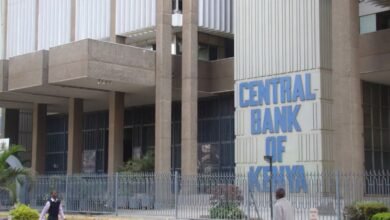
Kenya’s economy is projected to grow by 4.5 percent in 2021 according to the World Bank’s Kenya Economic Update (KEU) report.
Last year, the World Bank projected a growth of 1.5 percent in the baseline scenario due to the negative impact of the COVID-19 pandemic on Kenya’s Gross Domestic Product (GDP).
The report says growth will depend on the reopening of the economy, strong capital spending, a slight recovery in services, and adequate activities in the agricultural sector due to increased external demand from global economic recovery.
Further, the report indicates that Kenya’s economy is projected to maintain a steady recovery and return to growth of over 5 percent on average for the next two years.
However, the fiscal deficit is projected to decline from 8.7% of the GDP in the 2020/21 financial year to 4.2 percent in the 2023/24 financial year due to fiscal consolidation efforts.
Also Read
- Kenya’s economy to rebound to 6.6% in 2021
- Impact of Coronavirus on Kenya’s economy
- Uhuru; BBI will stabilise Kenya’s economy
Despite the improved projections, the Washington-based financial body has warned that Kenya’s economic growth is still vulnerable to the effects of the pandemic as the vaccination program continues.
High inflation
The cost of living has skyrocketed to a 15-month high after June inflation closed at 6.32 percent, from 5.87 percent in May, denoting a 0.45 percent deviation.
This is the highest cost of living that Kenyans have confronted since February 2020 when inflation hit 7.17 percent.
Data from the Kenya National Bureau of Statistics (KNBS) shows that the month-on-month increase in inflation is attributable to higher cost of food and fuel.
Foodstuffs including sukumawiki, spinach, beef, and cooking fat registered increased costs while the price of potatoes, onions and tomatoes went dipped.
In June, electricity rose because of a greater fuel-cost charge.
However, the WB’s prediction does not mirror that of the National Treasury which expects the economy to rebound by 6.6 percent in 2021 through the government’s intent to better the microeconomic environment in the ongoing implementation of the Big 4 Agenda.
Kenya is keen on fast-tracking implementation of the agenda to enhance food and nutrition security, achieve Universal Healthcare Coverage (UHC), provide affordable housing and support growth of manufacturing sector for job creation.
The Big 4 have been allocated Ksh.142.9 billion in the next Financial Year 2021/22 Ksh.3.03 trillion national budget.





